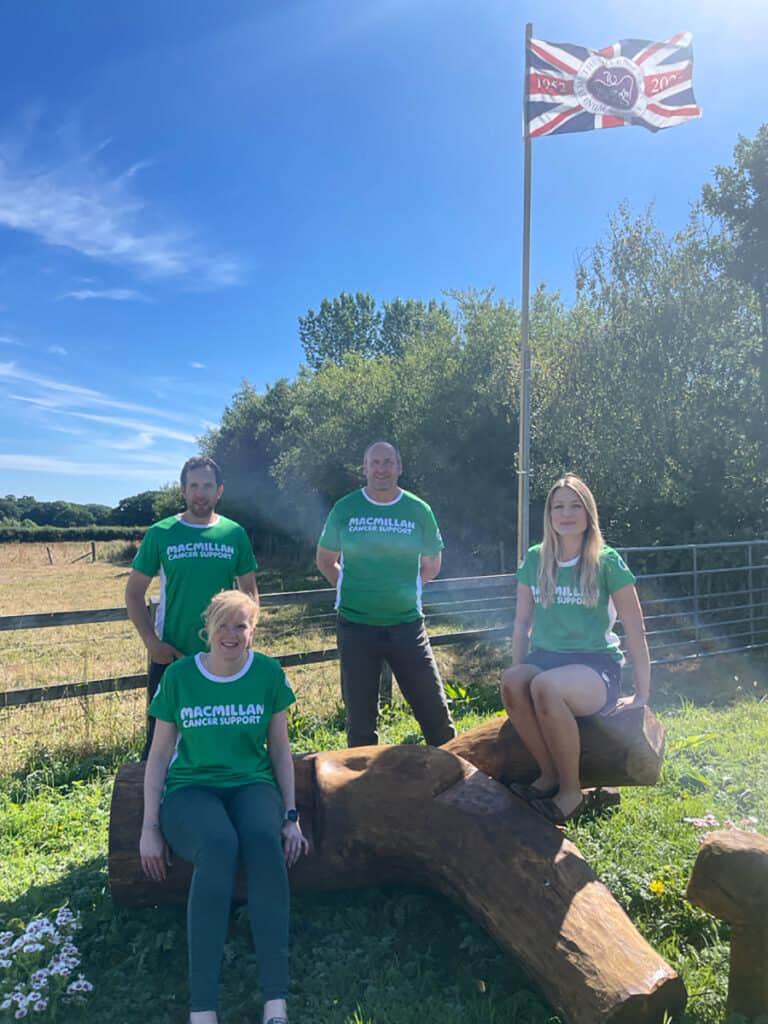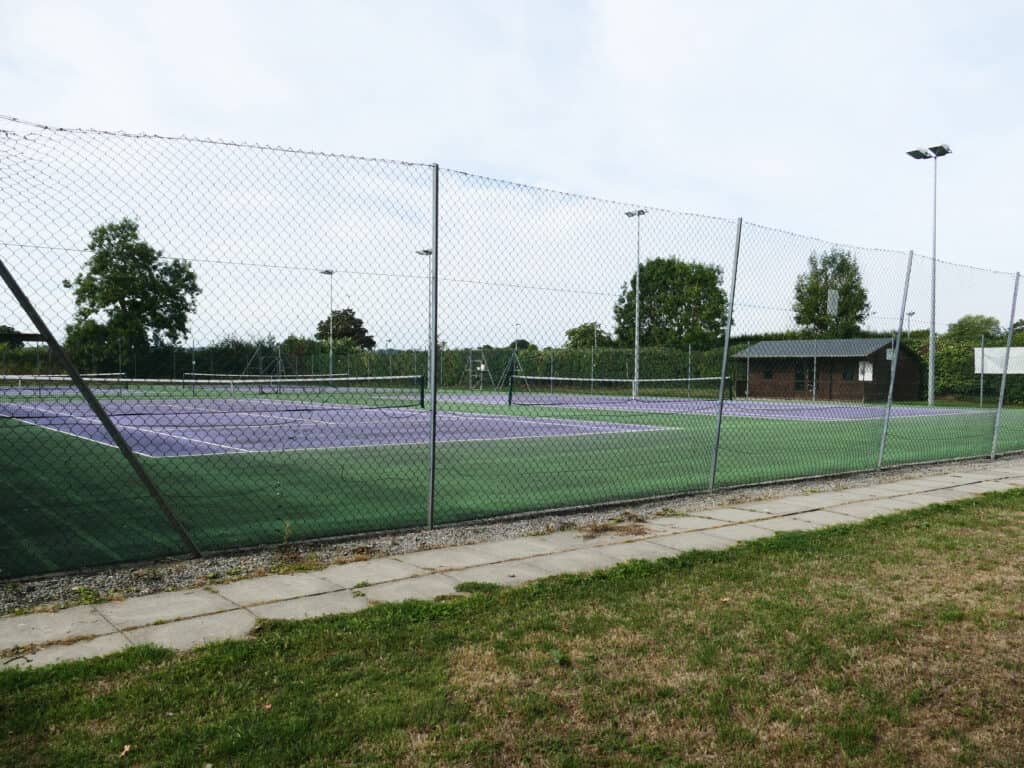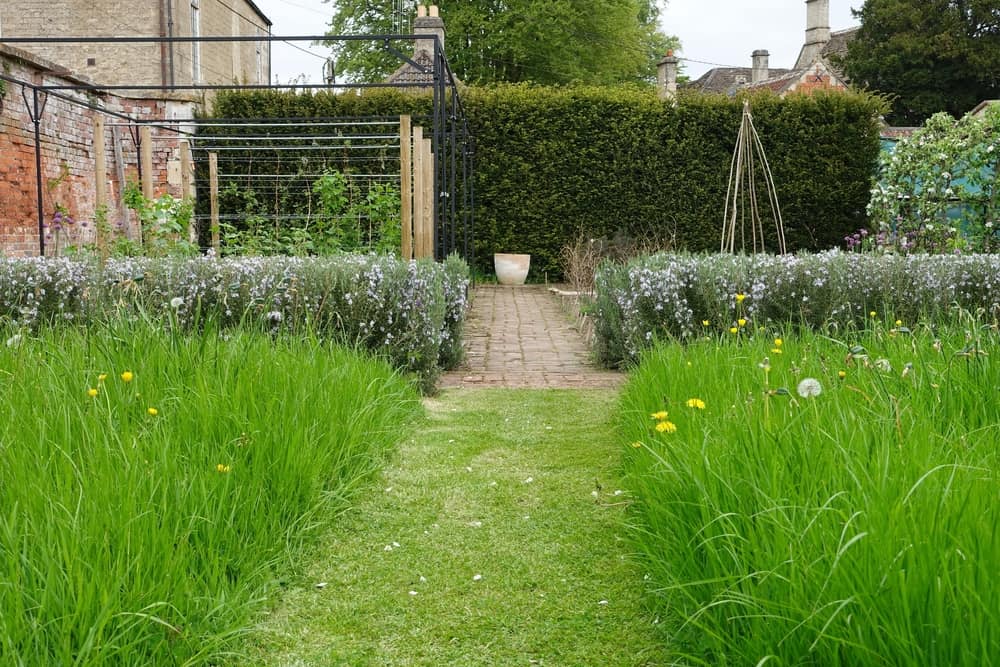Edwina Baines talked to Ursula Leach, known for her spare and richly-layered paintings of Cranborne Chase and the Blackmore Vale, in her Iwerne Minster studio.

The distant horizons of Cranborne Chase have long been a source of inspiration for famous artists including Lucian Freud and Elisabeth Frink. This vast, ancient landscape is built of rolling chalk grassland and escarpments, ancient woodlands, downland hillsides and river valleys, each with a distinct and recognisable character.
For most of her career artist Ursula Leach has drawn on the Chase for inspiration, but a move to Iwerne Minster five years ago has led her to explore the hedgerows (or lack of them) and different agricultural practices in the heart of the Blackmore Vale.

Better out than in
In the light, airy studio in her garden on a recent hot summer morning, she told me that although she continues to draw, she does not paint so much in the summer, as she prefers to be outside. She cycles around the Vale and walks with ‘my naughty mongrel Cloud’ – a dear little dog with a touch of Plummer Terrier. Ursula can access both the Chase and the Vale from her studio. It is on these excursions where an idea for a painting emerges. ‘Something will catch my attention in a glance. It’s no good going out looking for something. When I’m outside walking and I start to draw, it creates an appetite and I make masses of quick sketches to create an idea for a painting.’
Ursula draws attention to stunted and isolated hedgerows and the vast monocultures of modern farming methods. She wants the viewer to gain a different perspective of the landscape which is ‘revelatory rather than accusatory’ and to question our relationship with the natural world.

Vivid blocks of bright oil colour are used to bring landscapes to life, suggesting current agricultural practices and the gradual effects of climate change. The simplicity of the forms and use of the almost fluorescent colours within her work are intended to elicit a strong emotional response in the viewer.
‘I was always a country girl’ Ursula tells me.
She was brought up in a Yorkshire village until the age of nine when the family moved to Hampshire. But at an even earlier age, a painting she fell in love with in the art room at school decided her on a future career.
Following a course in fine art, where she was ‘taught how to look’, Ursula returned some years later as a mature student to Farnham Art College (now the University of Creative Arts) to follow a printmaking degree.
A ten year period of mainly printmaking followed, starting with very large monochrome etchings. But a desire to use colour made her search for another method of making prints. Carborundum is a gritty substance which, when mixed with PVA, creates a rough surface on the printing plate. This holds a lot of ink, and makes for rich velvety colours when inked up and printed. An initial base of colour is applied to the paper ‘to set the mood’ and the plate is printed with a very heavy Hunter Penrose etching press.
‘It’s hard work’ Ursula admitted, but the vivid results are well worth the effort. However, a desire for even more vibrant colours resulted in a return to painting.
Ursula is now planning a series of black and white drypoints. ‘It’s all about line, and it’s fun to experiment.’ Drypoint is a method that involves scratching an image onto a plate with a pointed tool. The incised line or area holds the ink and creates the image.
A competitive world
Ursula’s painting career really took off in the 1990s when she started selling prints in London. She had a lucky break after showing a large work at one of the UK’s most important art competitions – the Hunting Art Prize exhibition at the Royal College of Art. Subsequently, she received a letter from a woman who wanted to include her work in a new London gallery.
Ursula’s sound advice to young artists is ‘Go in for competitions! Keep at it. It’s a very competitive world now but it’s not a competitive activity. There’s so much luck involved.’
In 1996 Ursula was elected to the Royal Society of Painter-Printmakers, one of the world’s premier printmaking organisations. All of the society’s members are practising professional printmakers, elected after a rigorous selection by a panel of their peers. Their home is at Bankside Gallery, next to Tate Modern, where they hold regular exhibitions showcasing the best in contemporary printmaking.
Ursula says ‘if you live in the country it’s harder to meet both your audience and the major galleries.’ Currently her work is also shown at the Oliver Contemporary Gallery in Wandsworth.
A new exhibition is planned at Black Swan Arts in Frome with six other artists who live and work in Dorset and Hampshire. Group 7, as they are known, are all long-term practitioners who have a strong commitment to the media of drawing, painting and printmaking.
Another solo exhibition, at The Art Stable in Child Okeford, is in the pipeline for 2024. Hedgerows in the Vale may develop into the focus for this show, so look out for Ursula out cycling or walking with Cloud, camera and sketchbook in hand, examining the local field systems.
‘For me it always come back to colour in the landscape which catches my eye’
Find Ursula on Instagram
@ursulaleach01















